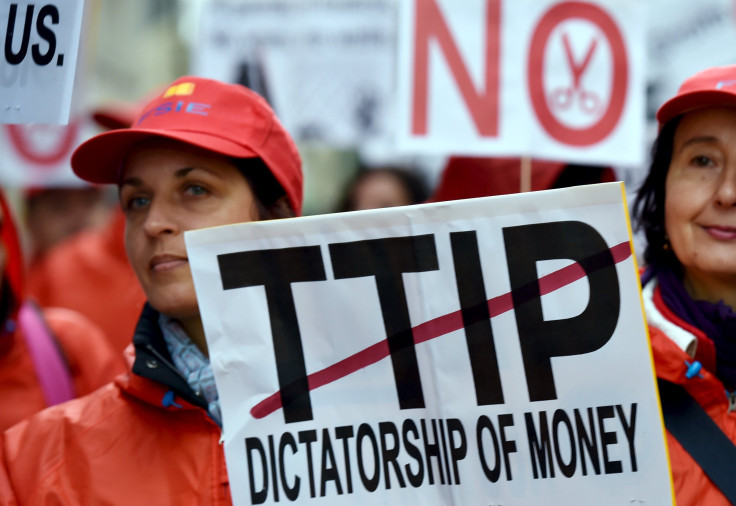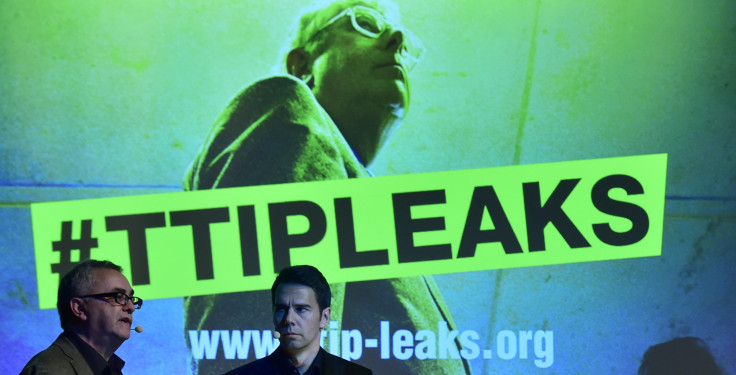TTIP Controversy: French Official Warns US-EU Trade Deal Likely To Stall Over Lack Of ‘Reciprocity’

A day after environmental activist group Greenpeace released a raft of leaked documents detailing closed-door negotiations between the United States and the European Union regarding the ambitious Transatlantic Trade and Investment Partnership (TTIP), a top French official warned that the ongoing discussions are likely to end without an agreement in place.
“In view of the United States' state of mind today, that seems to be the most likely option,” Matthias Fekl, French minister of state for foreign trade, told reporters Tuesday. “Europe is offering a lot and we are getting very little in return. This is unacceptable. ... We want reciprocity.”
Negotiations to hammer out the TTIP have been going on for the last three years. While the deal’s backers say it would boost trade between the U.S. and the EU by easing customs duties and removing red tape and restrictions on investments on both sides of the Atlantic, its critics — especially in the EU — argue that TTIP would hurt small- and medium-sized enterprises, allow large corporations to flout environmental regulations and give them undue influence over elected governments.
Fekl’s comments came after Greenpeace published 248 pages of “consolidated texts” — documents presenting the EU and U.S. positions on issues side by side — on its website. The environmental group, which has long been a vociferous opponent of the trade deal, expressed “grave concerns” over the impact of TTIP on environment and public health in the EU.

According to Greenpeace, the leaked documents reveal that the U.S. is urging the EU negotiators to adopt more lax regulations insofar as product regulation in the 28-nation bloc is concerned. These provisions, if adopted, would replace the stringent "precautionary principles" currently used in the European Union. Another area of concern the environmental group highlighted relates to the establishment of commercial arbitration courts, where companies can sue governments under the World Trade Organization rules.
The existing provisions, Greenpeace alleged, would “allow corporations or other actors to have unprecedented access to (and interference with) regulator's deliberative processes on both sides of the Atlantic and in the case of disputes.”
However, following the release of the documents, both EU and U.S. negotiators rejected the allegations. In a statement released Monday, Cecilia Malmström, the European commissioner for trade, said that the consolidated texts “reflect each side's negotiating position, nothing else.”
“It is only normal that both parties in a negotiation want to achieve as many of their own objectives as possible. That does not mean that the other side gives in to those demands. That does not mean that the parties will meet halfway. In areas where we are too far apart in a negotiation, we simply will not agree,” Malmström said.
“No EU trade agreement will ever lower our level of protection of consumers, or food safety, or of the environment. Trade agreements will not change our laws on GMOs, or how to produce safe beef, or how to protect the environment,” she added.
© Copyright IBTimes 2024. All rights reserved.






















